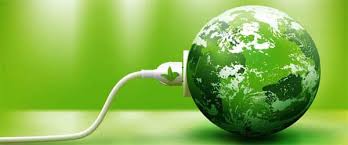
According to a study, even though many of the consumers believe that renewable energy deals are more expensive than conventional energy ones, the fact is that the cheapest deals on the energy market are accounted for by green tariffs.
The study conducted in the United Kingdom, green energy tariffs accounted for half of the top 10 cheapest tariffs and they are offered by the companies that are challenging the big six energy suppliers in the market.
According to the uSwitch study, tariffs at least £267 less and in one case £354 less than the average default tariff offered by the big six are offered by Outfox the Market, Pure Planet, Bulb, Yorkshire Energy and People’s Energyall. The situation a year ago was that just two of the top ten cheapest were green ones.
Renewables has also seen the return of the larger suppliers who had moved away from the green energy tariffs in recent years.
Fixed green tariffs are now offered by both E.ON and npower. This despite the fact that the tariffs cost hundreds of pounds more than those offered by smaller rivals. The number of green tariffs now is at 57 compared to 36 a year ago.
A survey among consumers conducted by uSwitch concluded that about 42% of the UK consumers still believe that compared to conventional ones, green tariffs are more expensive. However, switching to green energy was being considered by 38% of the respondents.
Another survey conducted on 2,000 adults by Opinium revealed that about 29% were ready to pay a price higher by £50. However, lack of trust in unfamiliar brands keep away 30% of the consumers from switching to green.
Smaller suppliers trying to differentiate themselves is the primary driver of the emergence of chealp green deals, uSwitch said. The report also noted that the suppliers were intent on showing that they are “no longer an expensive luxury for those who can afford to pay for their principles”.
But there are concerns arising about the extent of greenery in the green energy industry amidst the increase in cheap green tariffs.
The manner in which energy companies purchase their renewable electricity is at the centre of this debate. Compared to older green suppliers such as Good Energy, a cheaper approach has bene taken by the recent suppliers. Good Energy argued that some of the new entrants in the industry are not being able to encourage setting up of additional windfarms and solar parks.
The trend was called a “looming greenwash problem” that could result in the undoing the good work that has been done to convince consumers to switch to green, said Johnny Gowdy, a director at Regen, an independent not-for-profit that advises on sustainable energy.
However, Steven Day, the co-founder of Pure Planet, which launched in 2017, said: “All green energy is certified by the regulator to exactly the same degree and that’s all that matters.”
(Source:www.theguardian.com)
The study conducted in the United Kingdom, green energy tariffs accounted for half of the top 10 cheapest tariffs and they are offered by the companies that are challenging the big six energy suppliers in the market.
According to the uSwitch study, tariffs at least £267 less and in one case £354 less than the average default tariff offered by the big six are offered by Outfox the Market, Pure Planet, Bulb, Yorkshire Energy and People’s Energyall. The situation a year ago was that just two of the top ten cheapest were green ones.
Renewables has also seen the return of the larger suppliers who had moved away from the green energy tariffs in recent years.
Fixed green tariffs are now offered by both E.ON and npower. This despite the fact that the tariffs cost hundreds of pounds more than those offered by smaller rivals. The number of green tariffs now is at 57 compared to 36 a year ago.
A survey among consumers conducted by uSwitch concluded that about 42% of the UK consumers still believe that compared to conventional ones, green tariffs are more expensive. However, switching to green energy was being considered by 38% of the respondents.
Another survey conducted on 2,000 adults by Opinium revealed that about 29% were ready to pay a price higher by £50. However, lack of trust in unfamiliar brands keep away 30% of the consumers from switching to green.
Smaller suppliers trying to differentiate themselves is the primary driver of the emergence of chealp green deals, uSwitch said. The report also noted that the suppliers were intent on showing that they are “no longer an expensive luxury for those who can afford to pay for their principles”.
But there are concerns arising about the extent of greenery in the green energy industry amidst the increase in cheap green tariffs.
The manner in which energy companies purchase their renewable electricity is at the centre of this debate. Compared to older green suppliers such as Good Energy, a cheaper approach has bene taken by the recent suppliers. Good Energy argued that some of the new entrants in the industry are not being able to encourage setting up of additional windfarms and solar parks.
The trend was called a “looming greenwash problem” that could result in the undoing the good work that has been done to convince consumers to switch to green, said Johnny Gowdy, a director at Regen, an independent not-for-profit that advises on sustainable energy.
However, Steven Day, the co-founder of Pure Planet, which launched in 2017, said: “All green energy is certified by the regulator to exactly the same degree and that’s all that matters.”
(Source:www.theguardian.com)














